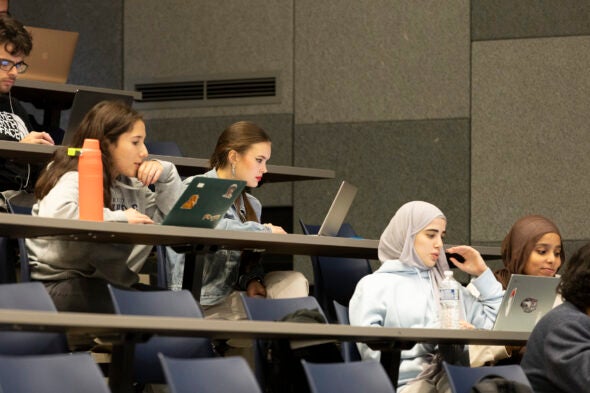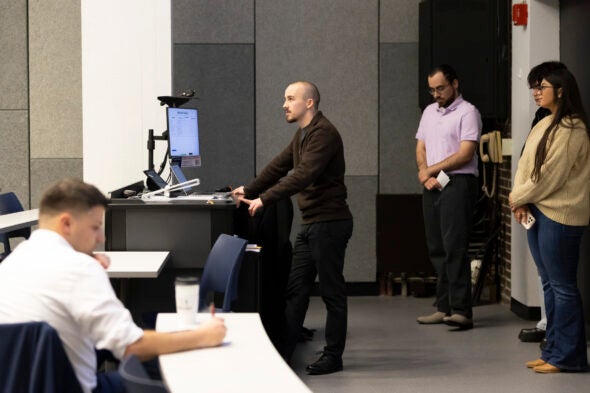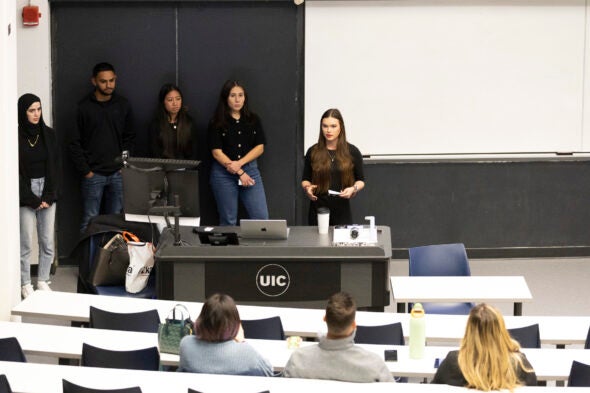Class partners students with companies for sustainability certification
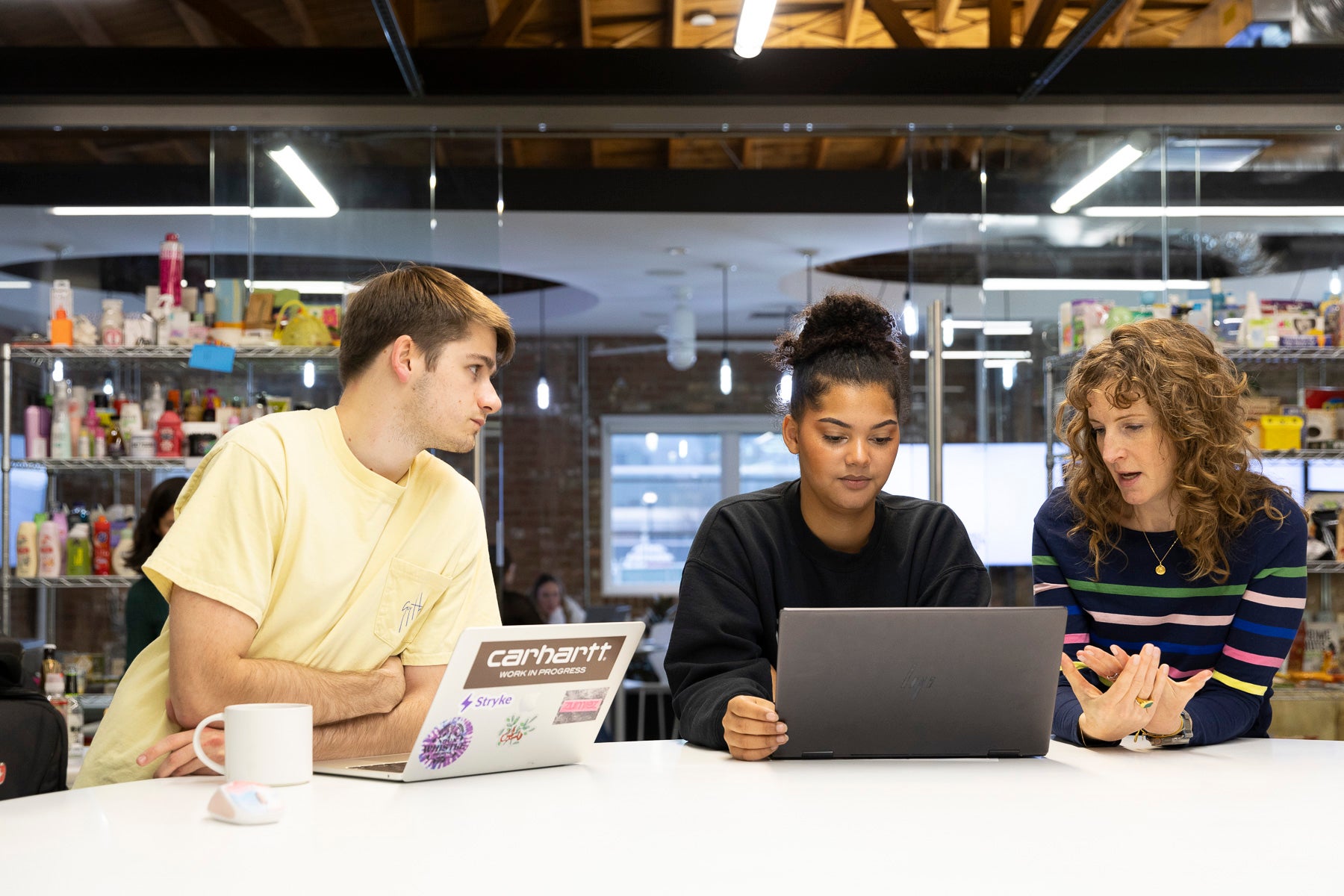
Since the beginning of the fall semester, 70 students have teamed up with eight companies as consultants, assisting them in maintaining B Corp Certification, a sustainability seal attesting they meet high standards of social and environmental performance, transparency and accountability.
The B Impact Clinic kicked off this fall as a new component of a required class for undergraduates in the College of Business Administration in partnership with the Office of the Vice Chancellor for Innovation and B Local Illinois. It ties into the nonprofit B Lab network, which began in 2006 with a global mission to “transform the economic system into a more inclusive, equitable and regenerative global economy.”
The clinic is a hands-on initiative in Clinical Associate Professor Shahnaz Ibrahim’s Business and the External Environment class and a partnership with Avi Mayerhoff, director of corporate partnerships in the Office of the Vice Chancellor for Innovation. The undergrad course is open to third- and fourth-year students.
“I was looking for something experiential for the students in terms of sustainability to increase awareness,” Ibrahim said. “Collaboration with industry is the best way to increase awareness about these timely issues because students will then understand how it works on the ground.”
Businesses that receive B Corp certification are committed to having positive impacts for five key stakeholders — their community, their customers, their employees, their environment and their company’s overall governance — which they take into consideration as they build and grow, said Mayerhoff, academic chair for B Local Illinois. B Local Illinois represents business leaders in Illinois who receive B Corp certification.
The companies must undergo a B Impact Assessment that determines whether they meet the social and environmental performance, accountability and transparency standards the network requires.
They must commit to being accountable to all stakeholders — including employees and customers — not just shareholders. They must also exhibit transparency by publicly sharing information about their performance.
“The B Impact Clinic at UIC gives students hands-on experience by evaluating a company’s sustainability efforts, identifying opportunities, and addressing challenges,” Mayerhoff said. “This partnership with purpose-driven businesses, supported by B Local Illinois, helps students engage directly with real-world sustainability issues while contributing to a more sustainable future.”
To maintain their certification, companies must be screened every three years to ensure they meet the requirements.
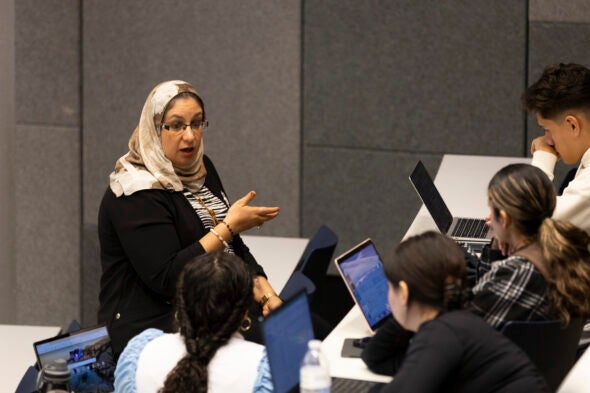
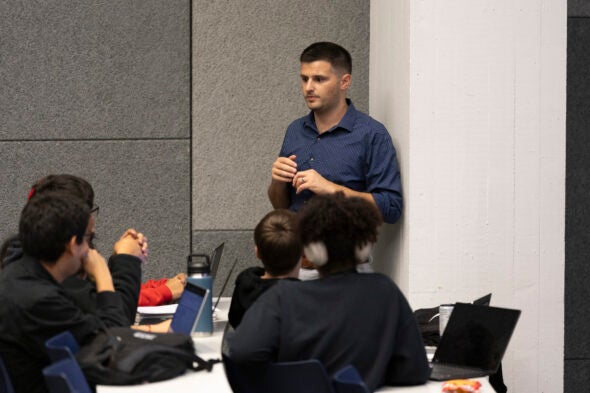
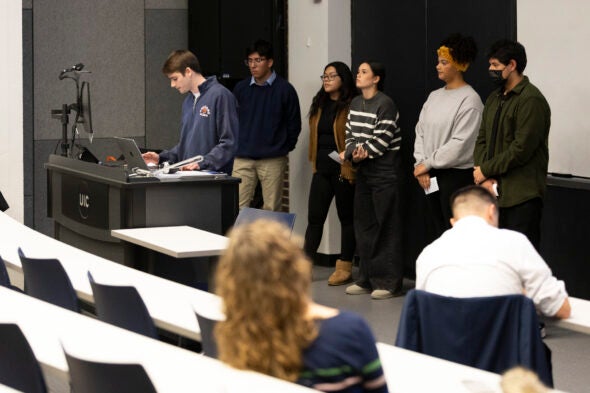
Student-company partnerships
Since August, the students have met either in person or virtually with the companies to devise goals and develop strategies to see how they ranked on their B Impact Assessment.
The companies included Metric Coffee, a Chicago coffee shop; Bluedog, a Chicago design and branding agency; ICE Dragon Corrosion, a Canadian corrosion control company; Catalyst Partners, a Michigan consultant firm; Vector Global Logistics, a Georgia supply chain management company; Global Brand and Export Development, a Naperville branding and export company; Merry Go Rounds, a Massachusetts children’s clothing and toys consignment store; and Lakefront Brewery, a Wisconsin craft brewery.
“It’s the first opportunity for me in a class where I’m able to have a really close relationship with a company and take a really deep dive into everything they do,” said Ali El-Hindi, a third-year accounting and finance major working with Merry Go Rounds.
During a recent class, students gathered in teams to discuss their progress and work out any last items they needed to complete before they presented their proposals and action recommendations to company representatives.
“It motivates me as a student to dive into the project because it does have a direct impact working with a real company,” said Allison Zeck, a third-year marketing major whose team worked with Global Brand and Export Development. “It also gives you a real taste of what a business role could be and provides you with knowledge about something you might want to go into as a profession.”
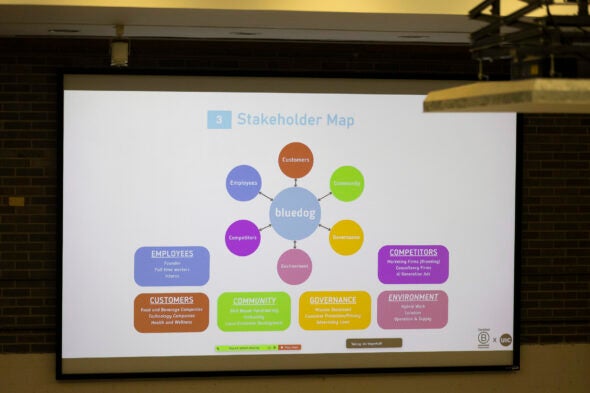
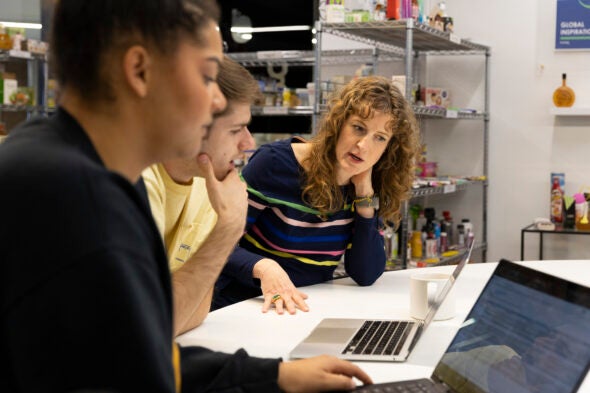
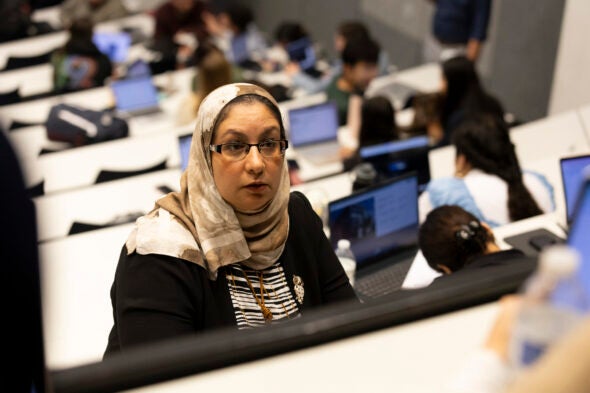
On-the-ground experience
Andrew Koralewski and Ki’Ayana Moore, fourth-year finance majors, talked with team members and Ibrahim about meeting with their company, Bluedog. They shared how company officials explained their company and their desire to be more environmentally friendly.
“I think this class helps me by learning how to manage businesses, and it teaches you the internal process of a business and how businesses run and how you can manage those people and the business,” Koralewski said.
At Bluedog, they met with Melissa Krchma, the company’s director of workplace and digital empowerment. They shared with her the stakeholder map they had devised, dividing the company into different stakeholders to whom Bluedog should be socially and environmentally accountable.
The students visited Bluedog’s offices in the Fulton Market District. Products designed by Bluedog were on display and included containers for popular beverages, food and cleaning products. Krchma said the company had about 50 employees, many of them working remotely. She asked the students how that would impact the company’s environmental assessment.
“When we think about the environment, do we think about hybrid work locations and the greenhouse gas emissions that come from people running their home offices and the energy used there?” Krchma said as she looked at the stakeholder map. “We would need to consider those same things for this, our main office, as well.”
After several meetings with Krchma and other Bluedog staff, students presented their proposals in class to representatives of the companies, who attended the presentations in person or virtually.
Krchma listened as the students detailed how the company could increase its B Impact ranking. Their recommendations included investing in renewable energy, increasing the number of eco-friendly products, showcasing their commitment to environmental sustainability, collaborating with local communities to promote recycling and green initiatives and monitoring water use with the goal of reducing it.
“I hadn’t thought of doing a water audit into a reduction in that way; I’ve always been thinking that we have to implement a huge system, but starting there made a lot of sense,” Krchma told the students. “I look forward to bringing those recommendations to our leadership and seeing what we can put into place now and what we could build towards.”
During the week of the final presentations, company representatives were impressed with the impactful work of all the students who showed sustainability-minded future leadership potential, Mayerhoff said.
“We believe that to have employees who can perform at the level we expect, we need to start teaching those skills while they’re undergrads,” Krchma said. “Students today bring a fresh perspective on environmentalism and what a balanced workplace should look like, and we’re eager to learn from their views.”
